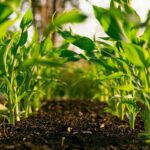USDA publishes strengthening organic enforcement final rule

USDA National Organic Program (NOP) has previewed “the biggest update to the organic regulations since the original Act in 1990.” On Jan. 18 the NOP released the Strengthening Organic Enforcement (SOE) final rule, which updates the USDA organic regulations, strengthens oversight and enforcement of the production, handling, and sale of organic products. This final rule implements 2018 Farm Bill mandates, responds to industry requests for updates to the USDA organic regulations, and addresses National Organic Standards Board (NOSB) recommendations.
The SOE’s effective date is March 20, 2023 and the implementation date is March 19, 2024.
The SOE executive summary indicates, “When implemented, this rulemaking will improve organic integrity across the organic supply chain, and benefit stakeholders throughout the organic industry.
These amendments close gaps in the current regulations to build consistent certification practices to deter and detect organic fraud, and improve transparency and product traceability. In addition, the amendments will assure consumers that organic products meet a robust, consistent standard and reinforce the value of the organic label.
The need for this rulemaking, the summary continues, “is driven by organic market growth and increasingly complex organic supply chains. Today's organic market is characterized by long—and often global—supply chains where organic products are handled by many businesses before reaching the consumer.
Often, these businesses are not certified organic—and therefore have no oversight from the USDA or USDA-accredited certifying agents. The absence of direct enforcement over some entities in the organic supply chain, in combination with price premiums for organic products, has created the opportunity for organic fraud. The amendments in this rulemaking are designed to mitigate the occurrence of organic fraud.”
Among other changes, listed below, three key industry changes will require certification of more of the businesses, like brokers and traders, at critical links in organic supply chains. This also requires NOP import certificates for all organic imports and also requires organic identification on nonretail containers.
NOP indicates the rule may affect USDA-accredited certifying agents; organic inspectors; certified organic operations; operations considering organic certification; businesses that import or trade organic products; and retailers that sell organic products.
Jenny Lester Moffitt, undersecretary for marketing and regulatory programs, indicates, “Protecting and growing the organic sector and the trusted USDA organic seal is a key part of the USDA Food Systems Transformation initiative.
The Strengthening Organic Enforcement rule is the biggest update to the organic regulations since the original Act in 1990, providing a significant increase in oversight and enforcement authority to reinforce the trust of consumers, farmers, and those transitioning to organic production. This success is another demonstration that USDA fully stands behind the organic brand.”
What does the rule do?
SOE protects organic integrity and bolsters farmer and consumer confidence in the USDA organic seal by supporting strong organic control systems, improving farm to market traceability, increasing import oversight authority, and providing robust enforcement of the organic regulations.
Beyond aforementioned changes, other key updates include:
- Increasing authority for more rigorous on-site inspections of certified operations.
- Requiring uniform qualification and training standards for organic inspectors and certifying agent personnel.
- Requires standardized certificates of organic operation.
- Requires additional and more frequent reporting of data on certified operations.
- Creates authority for more robust recordkeeping, traceability practices, and fraud prevention procedures.
- Specify certification requirements for producer groups.
The entire final rule: www.ams.usda.gov/organic/SOE








































